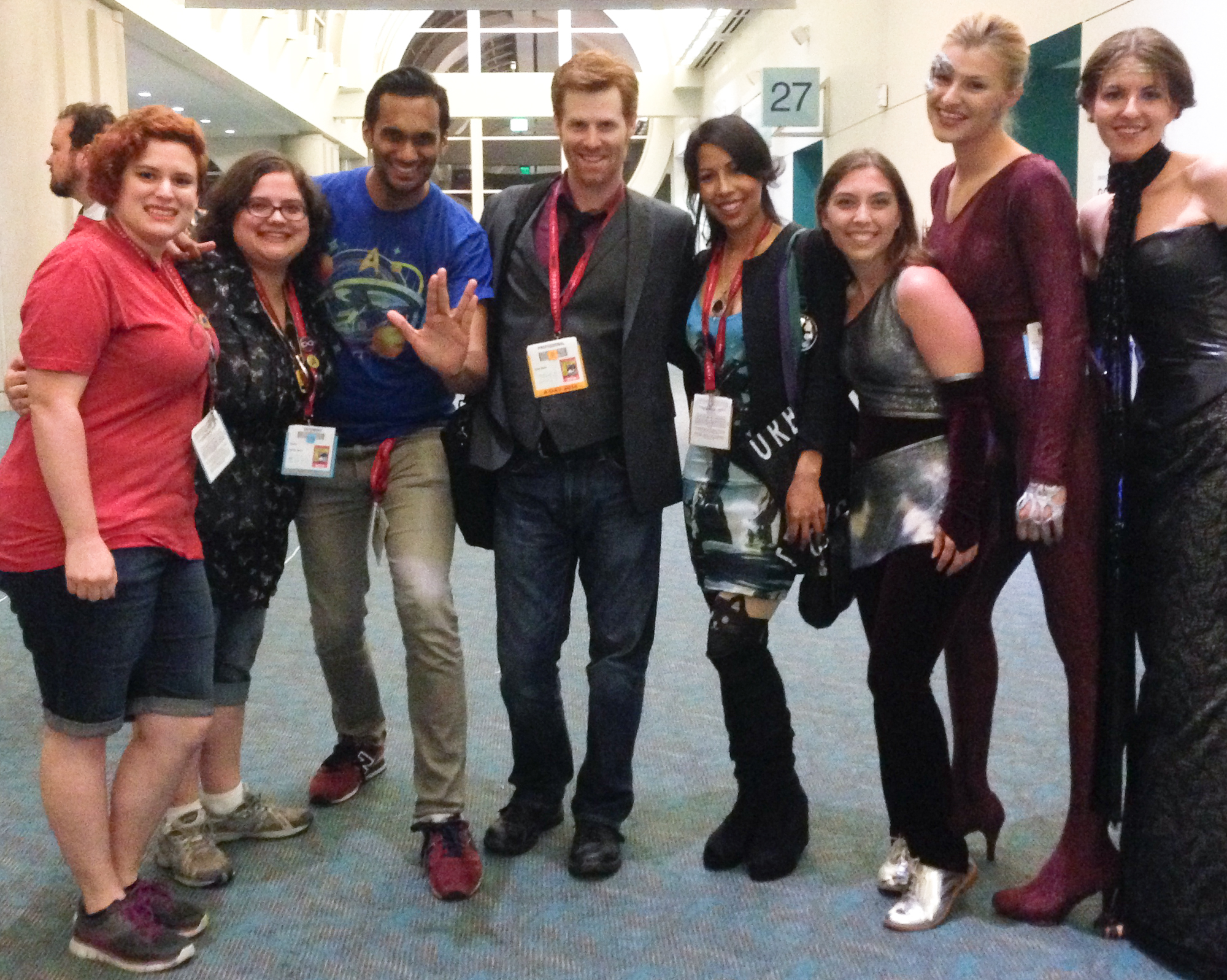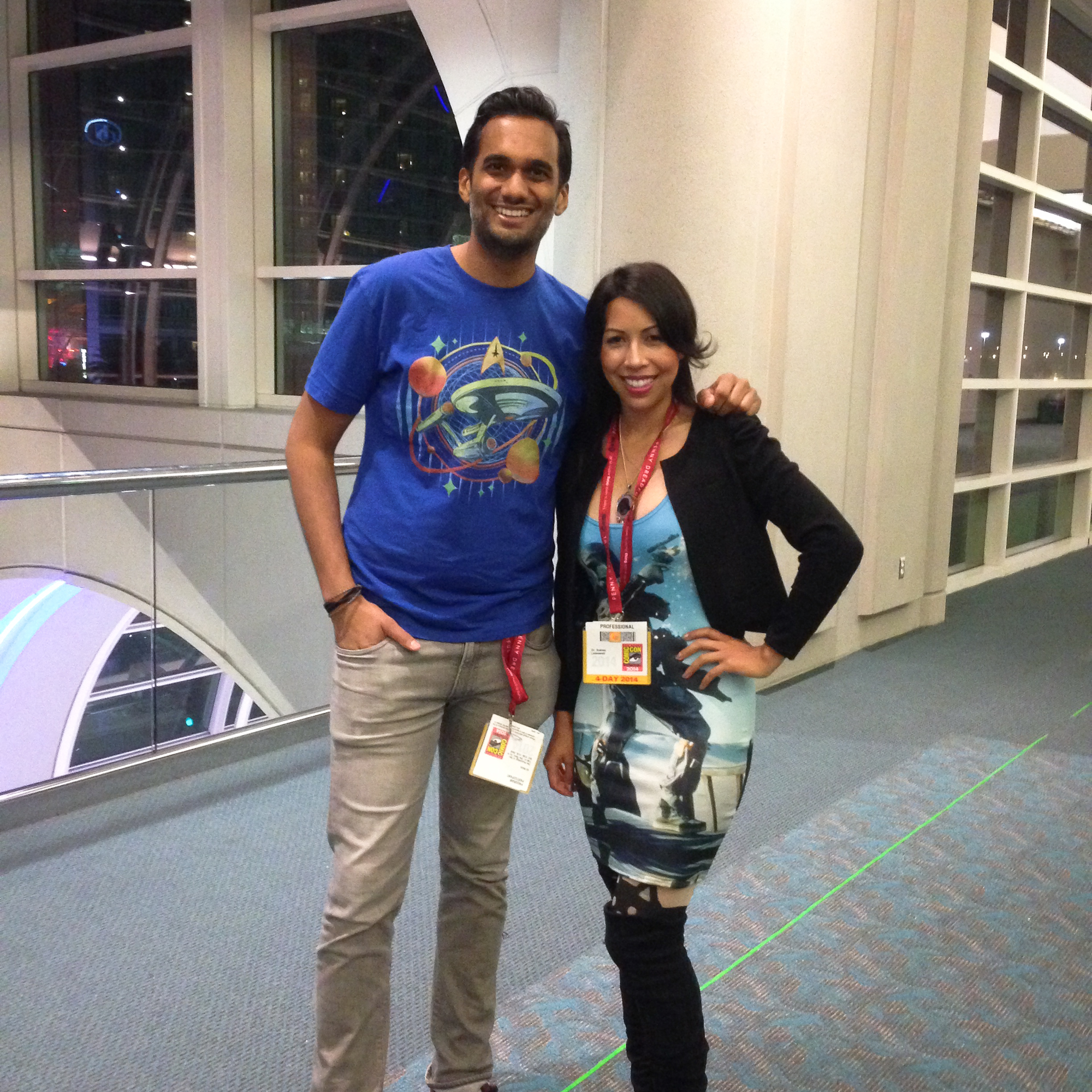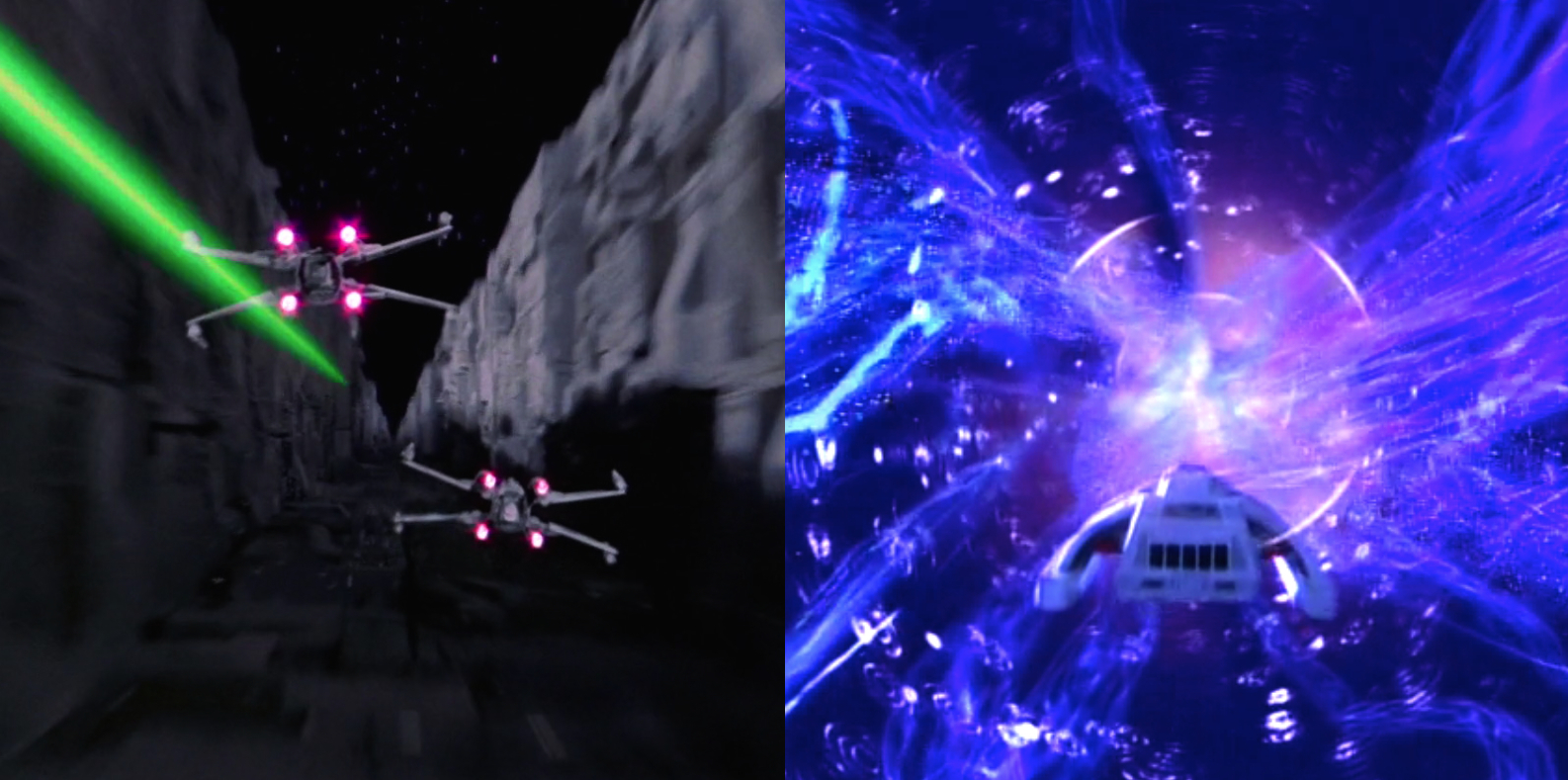Brian: Rule of two and Number One. Talk about mentoring and apprenticeship. Whether it is Captain Picard and Riker or Sidious and Maul. Let's talk about what we know about training and education and which system is better.
Andrea: Folks know what the rule of two is? Usually there is a master and apprentice. A lot of times with the Sith this is violated. There's a secret other apprentice who kills one of the other two. Despite that there's a classic relationship where the mentor is trying to instill some intellectual, emotional, and physical ability in the mentee and there's a need to make the mentor proud of them. With Star Trek, there are times when Riker was offered his own ship and he didn't immediately take that opportunity...
Sam: You get paid less if you leave the show.
Ali: The economics of the future are a little different.
Sam: You guys wanted Riker off the show? I didn't. Don't take the ship! Stick around. He's got a cool beard now.
Andrea: There's something weird about their relationship. There's too much enmeshment or attachment. When the bird's ready to fly, leave the nest.
Sam: Let's talk about the master and apprentice relationship between Ben and Luke and Ben's replacement – Yoda. There's a real thing that happens in Star Wars where Luke is impatient. He doesn't listen to everything that's told to him. Yoda's trying to say, "Hey, chill out, relax, people can take care of themselves. It's not all about you." Luke can't see that point of view. In fact, The Empire Strikes Back really is about respecting your elders. Luke doesn't do that. Because he doesn't do that he goes off trying to rescue his friends and his friend end up having to rescue him. He almost blows the entire plan. He almost loses the entire movie series for us in that one impatient move. Then the next movie is interesting because it's about the opposite. It's about rejecting your elders. Move past your elders. You become the man or woman. You've grown up. You're actualized. Ben says, "You must face Darth Vader again."
And he's like, "You're saying kill him?"
"Well...face him."
“You know he's my dad?"
"Yeah, I do."
"Yoda, what do you think?"
"You must confront Vader."
Luke's like, "You guys are dicks! What is wrong with you people?!?"
"We saw him kill a bunch of children, he's a terrible husband, and he’s in this total Goth phase. We just want you to take care of him."
"No dude! I don't know what my solution is yet but I'm going to figure something out."
So the next movie is about rejecting your elders, the opposite message of the previous movie. Luke is now an adult, a man. He's grown past that mentor relationship. Now he's ready to make his own decisions. What does he find? He figures out a solution that no one thought of! A compassionate solution. A Star Trek solution. Through that we get a very satisfying ending. A brave ending. It makes Darth Vader a sympathetic character and Luke someone who's brave enough to have compassion.
Rod: I just learned so much!
Brian: Ali and Team Trek?
Ali: How do I follow up any of that?
Brian: It's got to be psychological torture.
Ali: THERE ARE FOUR LIGHTS!
Sam: There are five.
Ali: So...ummm...I agree with both of you so let me take this into a different direction because I need to do that. This question is really one about training and education. How do we create the next generation of Sith, Jedi, and Captains. Both series have an academy and a mentor type relationship. If we look at the psychology of education, it actually shows that a lot of the lecture style of teaching that happens in academia, well there's not a lot of evidence to support that. What works really well is learning from your peers and having some type of mentor available to clarify and go through the stuff you're learning. Both series do that well. We see it with Luke, Wesley, and Nog. But Star Trek does it better. Both series have aptitude tests, like the SATs. In Star Trek, we've got the Kobayashi Maru. Star Wars, you guys have an aptitude test as well...it's a blood test. It's looking for midichlorians and we know tests like that aren't as successful. In Star Trek the tests are character based – how do you respond to this situation. Star Trek's about integrity, equal opportunity. You don't have to be off the charts on your midichlorians. You can be a Ferengi and still be in Starfleet.
Sam: That was extremely offensive, racially. "You can still be a Ferengi." REALLY?!?
Ali: Technically they're not members of the Federation...so yeah.
Sam: Wow.
Rod: I might agree with Star Wars a little bit. I love your response [Ali], so I'm on your side, but the one thought I really had was if you're a member of the Federation you have to abide by Federation laws, Starfleet has rules and regulations. With Riker and Picard, there wasn't much growth in the characters. Not as much as Luke and Leia. They don't have to abide by any set rules. They understand that everyone's going to have a different journey while the Federation regulates.
Ali: Hold on, Rod. Riker grew a beard, how much more growth do you want?!?
Rod: Yes, yes he did.
Sam: Star Trek taught me a lot about patience in that process you're talking about. There really was a feeling that you must have a great deal of experience before you captain a ship. Even when you captain a ship you are looking to your friends who are your subordinates but you're treating them as equals because they have knowledge that you don't. They have wisdom that you don't. You add that to yourself before you make a decision.
Rod: Yoda had 900 years of wisdom.
Sam: There's that. Star Wars is more about how the relationship with your father and your parents is not what you hoped it would be and can you forgive them for it? There are two different types of learning there and both are very useful for young minds.
Audience Member: Switch seats!
Sam: We're trying to bring balance to the force dude!
Rod: Without dark there can be no light.
Round 4: The Creators

















